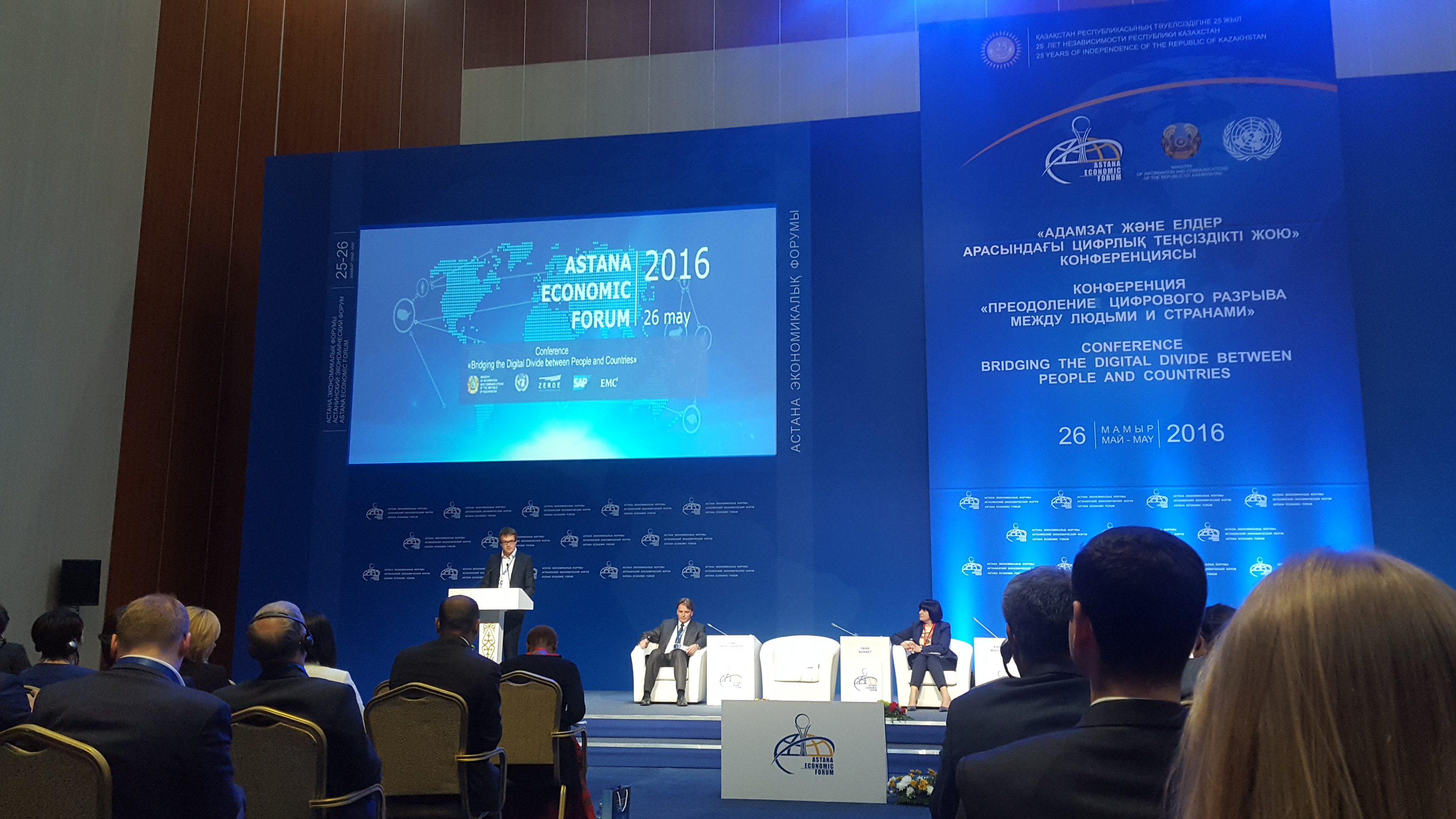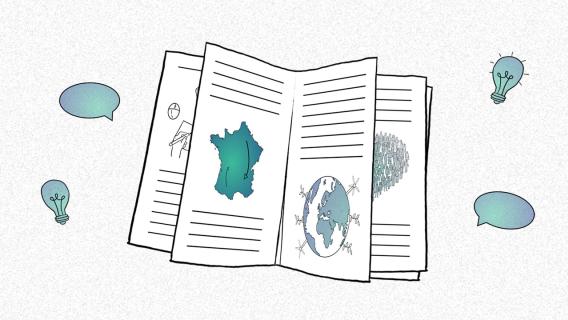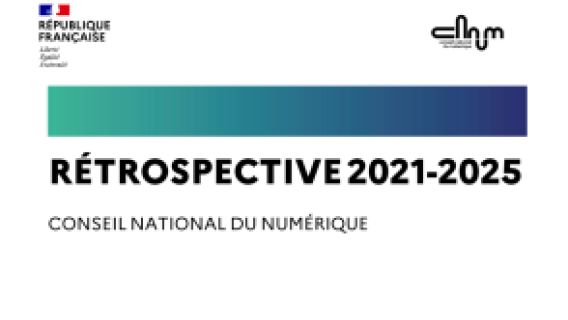Intervention de Yann Bonnet à la conférence organisée par l'ONU au Astana Economic Forum
Intervention de Yann Bonnet au Astana Economic Forum - Conférence organisée par l’ONU
Bridging the Digital Divide between People and Countries How to Ensure that Digitalization brings Equal Opportunities

This is a great honor for me, as the General Secretary of the French Digital Council, to participate in this debate on how the Digital can serve more inclusive societies. But first, what is the French Digital Council and what do we do ?
- The French Digital Council is an independent advisory commission, appointed by the French President.
- We are 30 volunteers, geeks and entrepreneurs who are committed to one major purpose : help the French government elaborate, shape and implement digital public policies.
- Everyday, we identify problems that have to be solved, needs that have to be covered, and we propose new ideas, solutions to tackle them.
- We issued recommendations on a great number of topics: from inclusiveness in the digital society to online platforms, e-health, education, tax models, cybersecurity, but also on the mutations of work and employment.
- Apart from this mission, the Council is meant to be an interface between the government and the digital ecosystem.
- We like to consider ourselves as a “public lobby”, a lobby for those who don’t have one – citizens, SMEs, startups who don’t have the time, the money to assert their interests in front of public authorities.
I believe this is what we achieved last year, when the French PM entrusted the Council with the challenging mission of leading a national consultation on digital issues.
- This experiment was unique for several reasons:
-
- we chose to address a vast scope of subjects: from Human rights to growth and innovation issues, the digital transformation of public action or the inclusiveness in the Digital society.
-
- But I think it was unique, mainly because of its process: a public and transparent debate, largely opened to the public:
-
-
- To do so, we launched an online platform, allowing any citizen, public or private organisation to contribute to the consultation. We got around 20 000 contributions.
-
-
-
- We also organized 4 major meetings in different cities of France, asking innovators to come and pitch their ideas and initiatives.
-
-
-
- lastly, we distributed an online kit (in a “do it yourself” approach), so that any wanting stakeholder could organize their own workshop on any part of the territory.
-
More than 70 workshops were organized by universities, mayors of small towns, professional associations and even – this is a true story - a retirement home. On this rich basis, the Council was able to issue 70 recommendations which we believe are a significant contribution to the digital strategy of France, at a national, European and international levels. This was just an experiment but I truly think that, in the years to come, we will be able to co-elaborate public policies on a general basis. Since the 1970s, the creation of Internet has turned our world into a radically different place. Not only because we can be connected to immediate information from all over the world 24 hours a day, but also and foremost, because this new ways of accessing informations have transformed our ways of life and our organizations. We have to bear in mind that digitalization is not only a technological breakthrough, it’s also a political and social revolution. It has the power to shape a different society. And it is an extremely fast process. As a matter of fact, we don’t know what’s coming next. We live in a period of uncertainty. Yet we do not see digital revolution as a challenge. As a matter of fact, we mostly see it as an opportunity. We never got more powerful tools to transform the world than digital technologies. But changing the world means nothing if a large part of it is excluded from those transformations. This is why digitalization must necessarily come with an inclusion policy based on access, digital litteracy, support and empowerement.
- In this regard, we should speak of inclusiveness rather than ‘digital divide’.
We’re not big fans of the concept of digital divide. It suggests that the problem is all about “including the digitally exluded” and that it could be solved by measures only focused on access.
- In fact, the whole society is in constant need for inclusiveness.
Even the people who seem at first comfortable with all things digital. Let’s take the so-called digital natives, for example. The fact that they can use technology doesn’t mean that they have the ability to understand and proprely operate it. In short, the issues of inclusiveness touch the entire world population, starting - of course - with the excluded people. Therefore, access is a prerequisite, but we must go further than only bridge the digital divide. Digital technologies can be used to help people climb out of social exclusion, to reconnect with the world around them and encourage creative behaviour. In this regard, digital literacy is a must. We need to provide everyone with the keys to the world of the future, in order for them to understand that world and play a part in it, aware of their choices, rather than to submit to it and consume solutions which are designed and decided elsewhere. More than ever, we’ll have to master the basic skills to access the essential services, exercice our rights, find a job. This is why digital education must be the priority of the 21st century ! Every individual who receives a state education should emerge from it digitally literate. From primary school to college, it is essential to generalise digital litteracy if we want this new society to reduce inequalities, and not create new ones! Better access to information, digital mediation.. are key factors to empower citizens. The digital transition must be a catalyst for individuals’ rights, freedoms and empowerment. It should be considered a political goal. Thank You.




